Reading comprehension Life Science Worksheets for Ages 4-7
10 filtered results
-
From - To
Enhance your child's understanding of life sciences with our engaging Reading Comprehension Worksheets, specially designed for ages 4-7. These worksheets foster essential literacy skills while introducing young learners to foundational life science concepts. Each worksheet contains age-appropriate texts that capture children's interests, accompanied by fun questions that challenge their comprehension abilities. By integrating reading with science, kids develop critical thinking skills and a love for learning. Perfect for homeschooling or classroom use, these worksheets offer a comprehensive approach to learning, making science accessible and enjoyable. Start your child on an exciting educational journey today with our thoughtfully crafted resources!
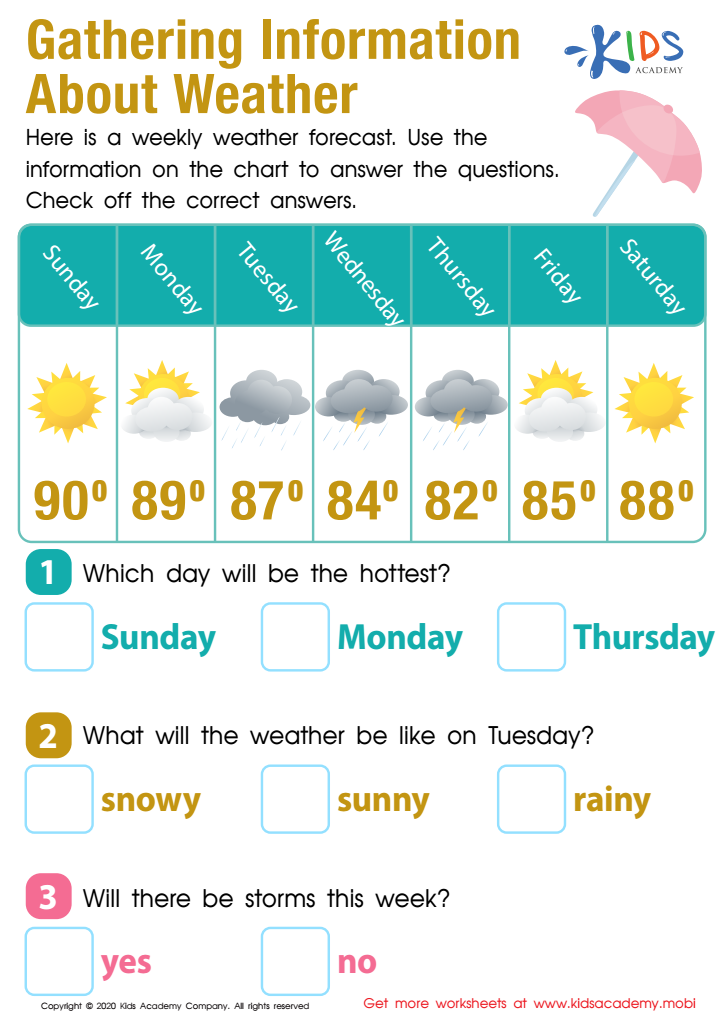

Gathering Information About the Weather Worksheet


Herbivores Printable
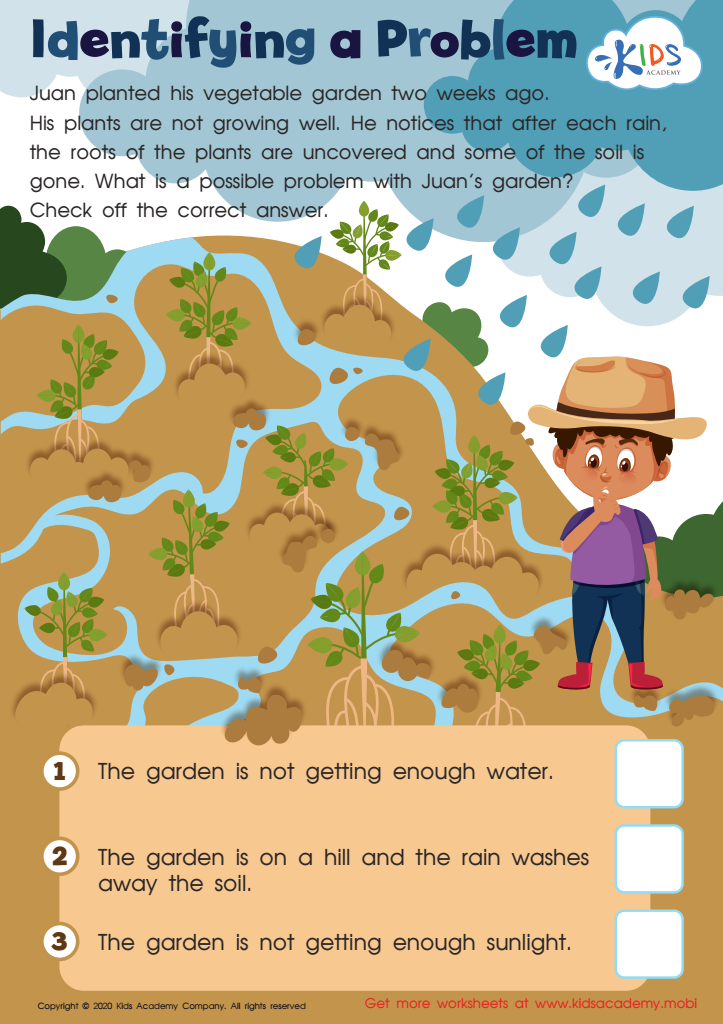

Identifying a Problem Worksheet


Carnivores Worksheet
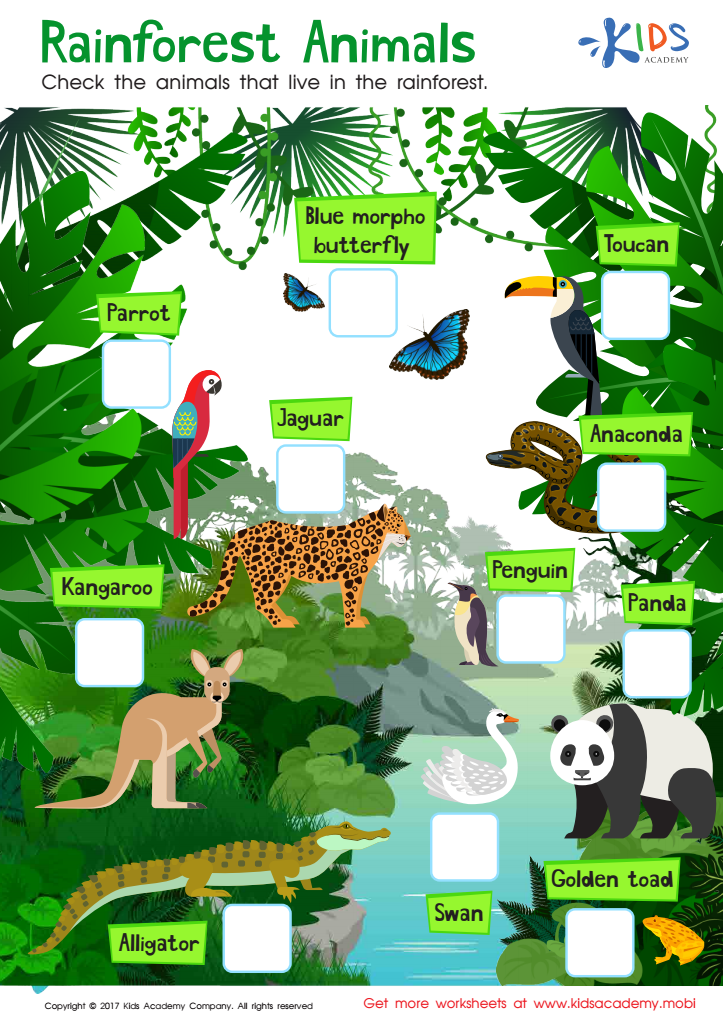

Rainforest Animals Worksheet
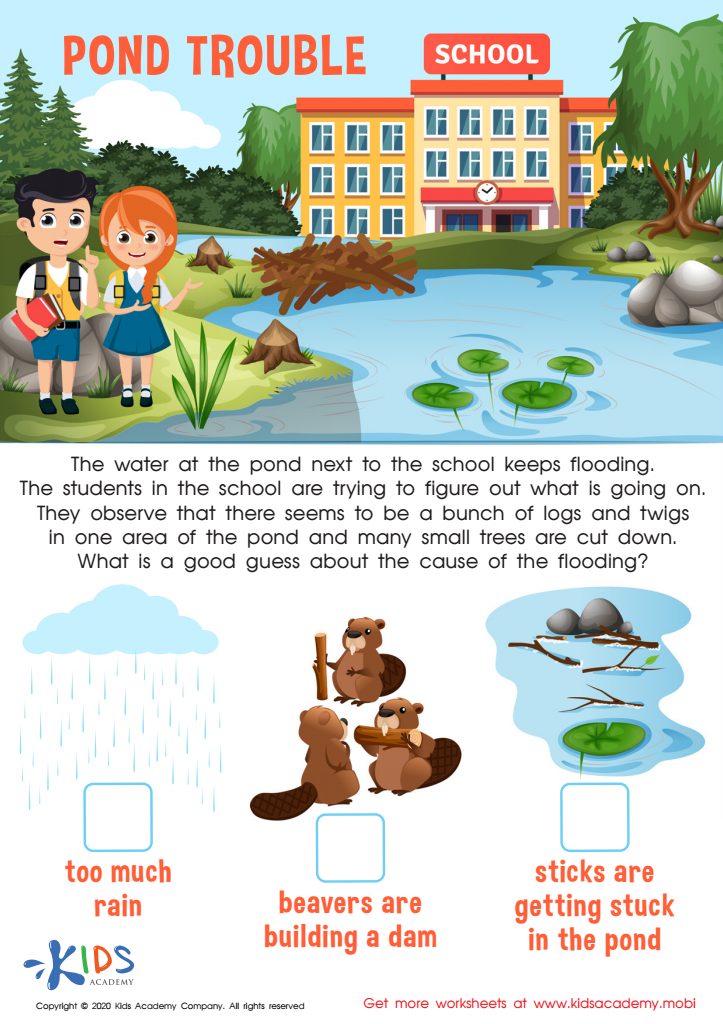

Pond Trouble Worksheet
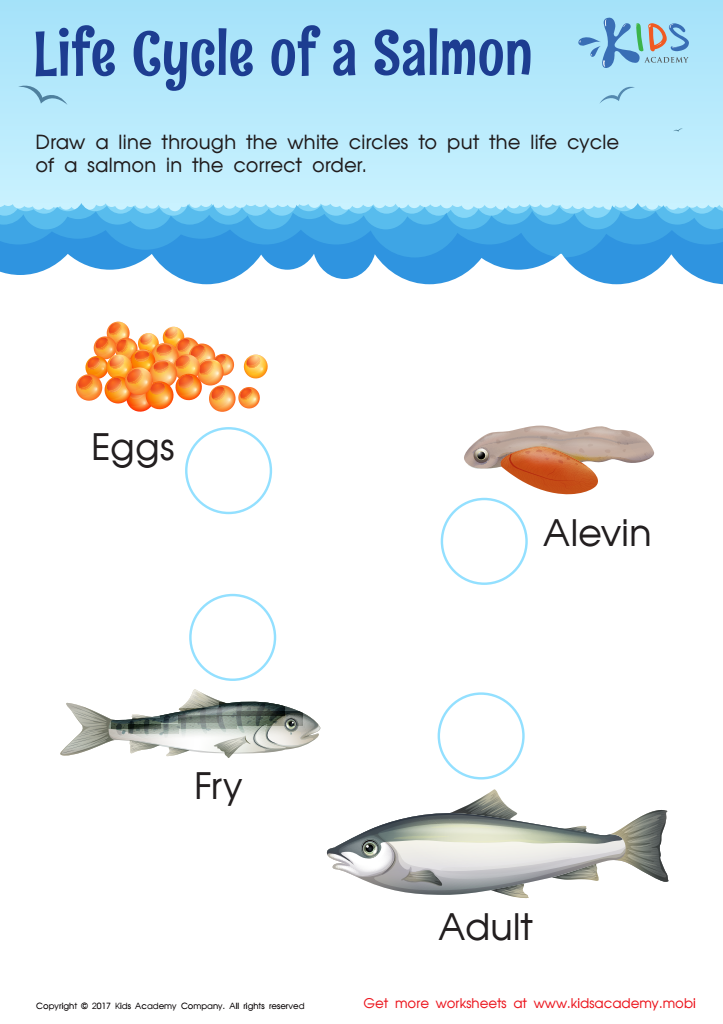

Cycle Of Salmon Worksheet
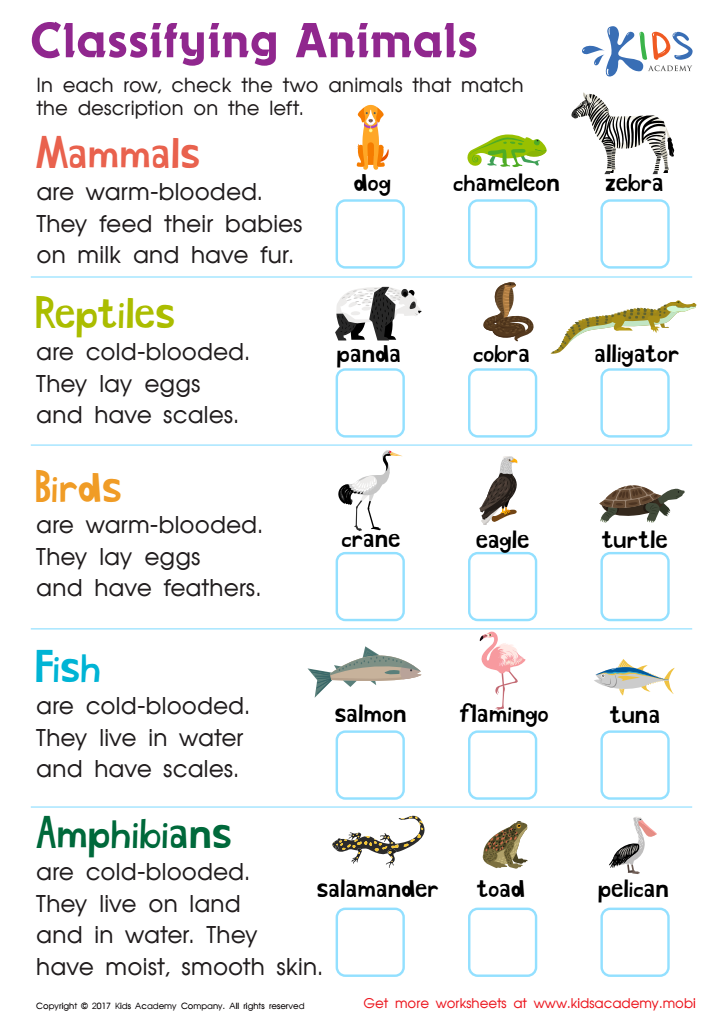

Classifying Animals Worksheet
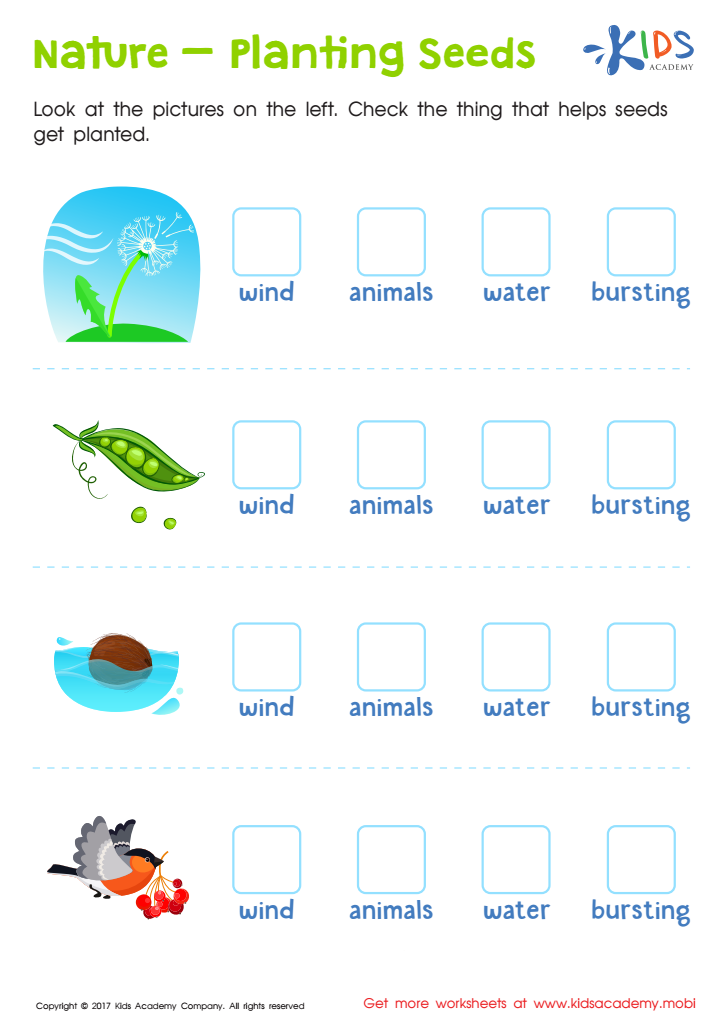

Nature Planting Seeds Worksheet
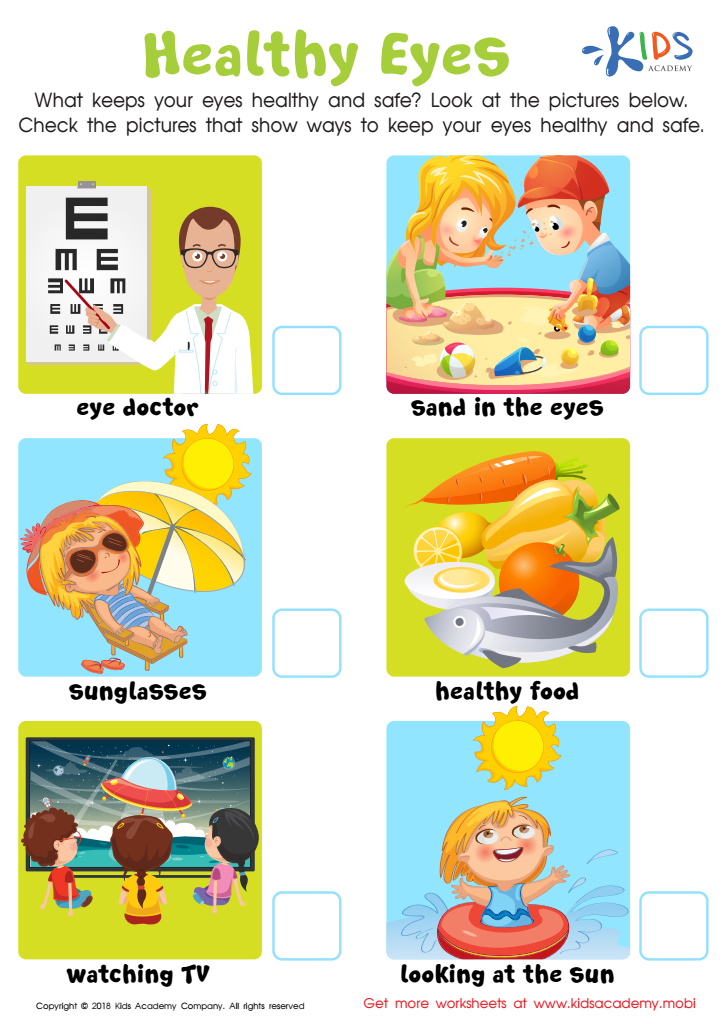

Healthy Eyes Worksheet
Reading comprehension is crucial for children ages 4-7, particularly in subjects like Life Science, where understanding basic concepts about the world is foundational for their intellectual growth. At this age, children begin to make connections between text and real-life experiences. By fostering strong reading comprehension skills, parents and teachers enable children to engage actively with Life Science topics, such as living organisms, ecosystems, and the human body.
When children comprehend what they read, they can better grasp the intricacies of their surroundings and nurture their curiosity about nature. Engaging with Life Science texts enhances vocabulary and critical thinking while inspiring wonder and questions about their environment.
Moreover, developing these skills at an early age sets the stage for subsequent learning, fostering a lifelong love for reading and science. As children learn to interpret illustrations, diagrams, and key concepts in texts, they become more confident learners, capable of articulating their thoughts and wonderings.
Overall, prioritizing reading comprehension in Life Science not only enriches children's knowledge but also encourages a holistic understanding of the world, empowering them for future academic pursuits and promoting informed citizenship. By investing in these interactions, parents and teachers play a pivotal role in shaping inquisitive, knowledgeable individuals.

 Assign to My Students
Assign to My Students








%20(1).jpg)













